Fashion made in England
Introducing Hanna Fiedler
Hanna Fiedler – from Berlin to London and building her own brand

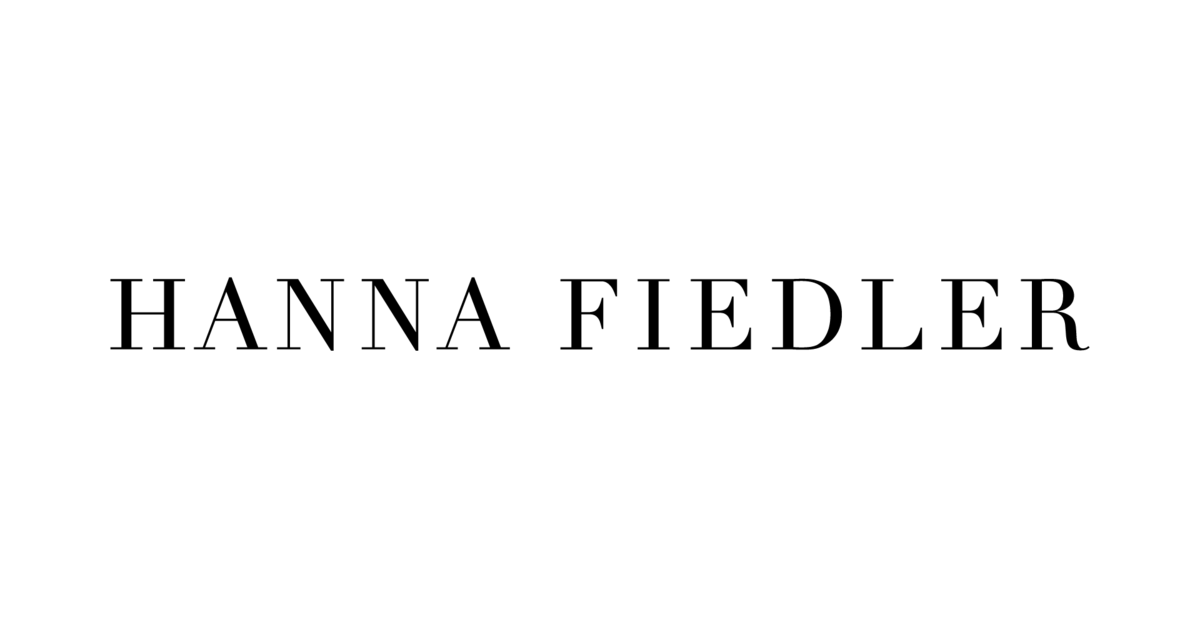
»Designers should only make clothes that are sold with fair and transparent production, it should be as important as profitability.«
Hi Hanna, please introduce yourself.
Hi, my name is Hanna, I am the founder and designer of the label HANNA FIEDLER. I design fashion with love for traditional crafts that makes women feel strong and free. Born and raised in Germany, I have lived and worked in London for 5 years now, apart from a few months in New York.

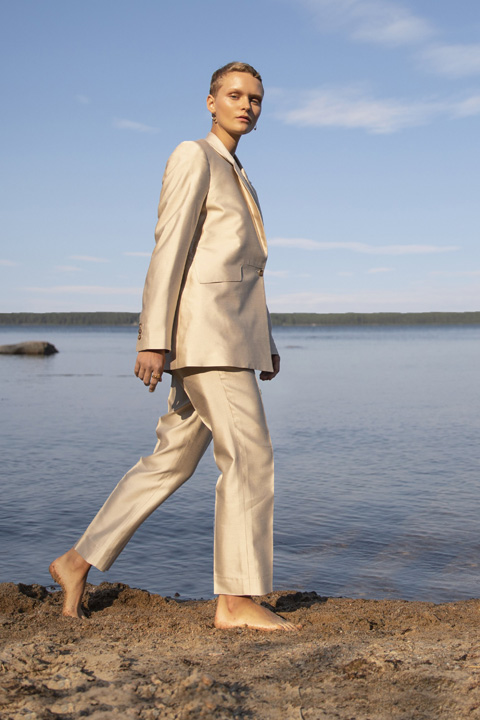

Why do you do what you do?
I became a fashion designer because I always had a love for crafts. As a teenager I started designing and sewing clothes, which I really enjoyed. After an internship in the costume workshop at the Thalia Theater in Hamburg during the summer holidays, it was clear that I wanted to learn tailoring at a theatre. I was absolutely fascinated by the creativity, effort and craftsmanship that went into every costume. The playhouses still often work in a very traditional way which you can rarely find in the industry, since the techniques are too time-consuming and therefore very expensive.
After graduating from high school, I trained three years as a tailor at the Berlin Opera Foundation and then decided to study fashion design in London. I love the creative process and being able to create something with my hands and use all the lessons learned from my studies and training to work in today’s way, combining traditional craftsmanship and ready-to-wear.
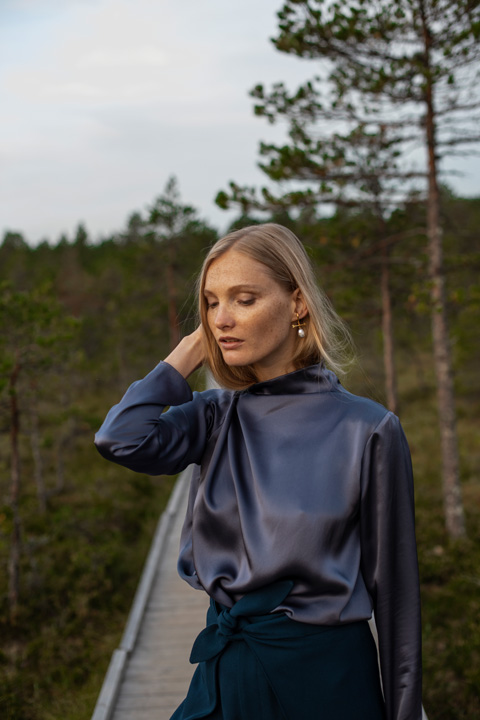
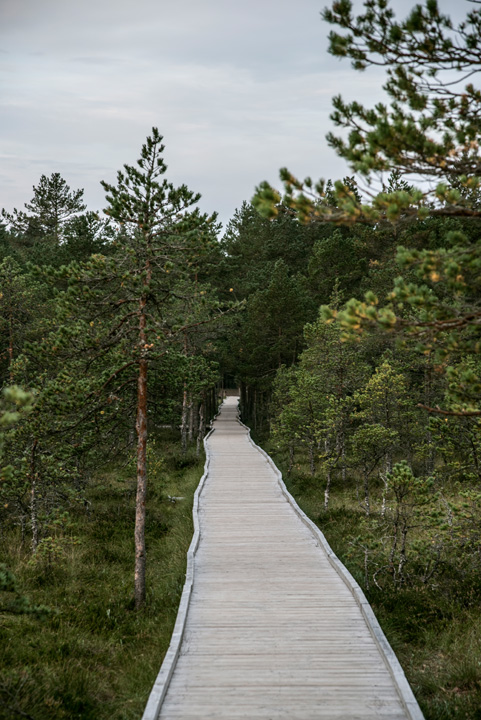

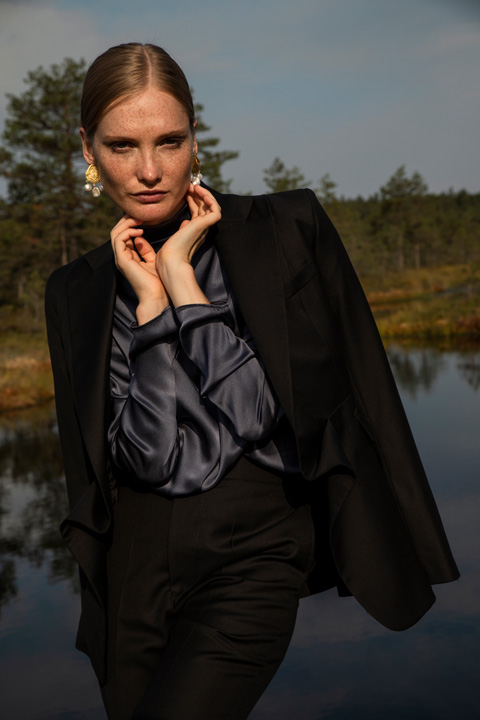
How long have you been involved with sustainability?
Unknowingly since my childhood, because my parents put great importance on a conscious use of nature and resources. They built a wooden house using mostly their own wood, they produce warm water with solar energy and collect rainwater in a water cistern for garden irrigation and toilet flushing.
So, my parents taught me the basics from an early age, and later I started to actively engage with it myself and integrated sustainability into my work.
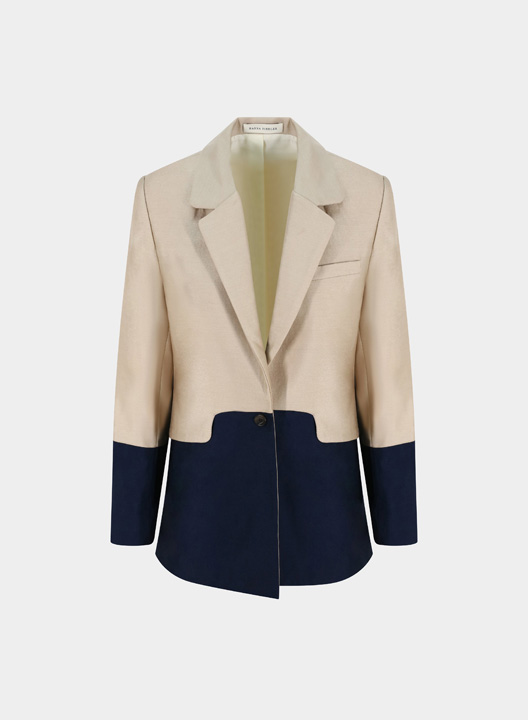
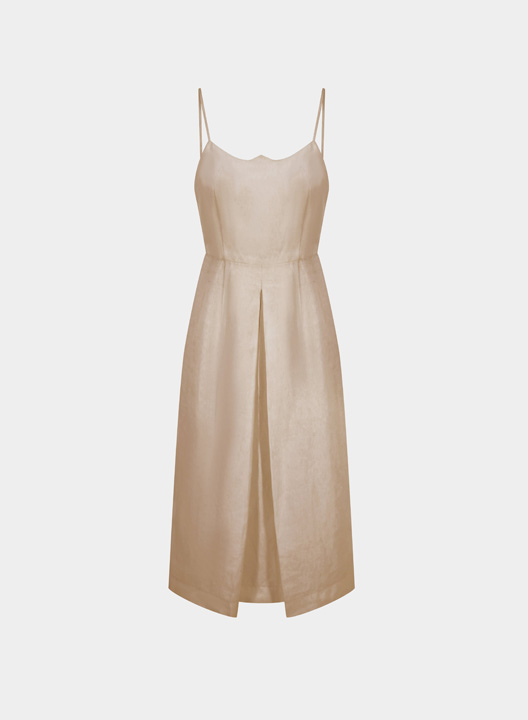


Was there a trigger moment for this?
During my training in Berlin, I became aware of a strong discrepancy between how long it takes me to sew a piece of clothing and for how much it is sold in the shop. This was the beginning of engaging with the topic of sustainability.
In London, which is considered the number one shopping destination in Europe, I became aware of a completely different level of consumer behaviour. I increasingly thought that this could not work in the long run. It was definitely the start of a process for me and it’s still far from completed today.
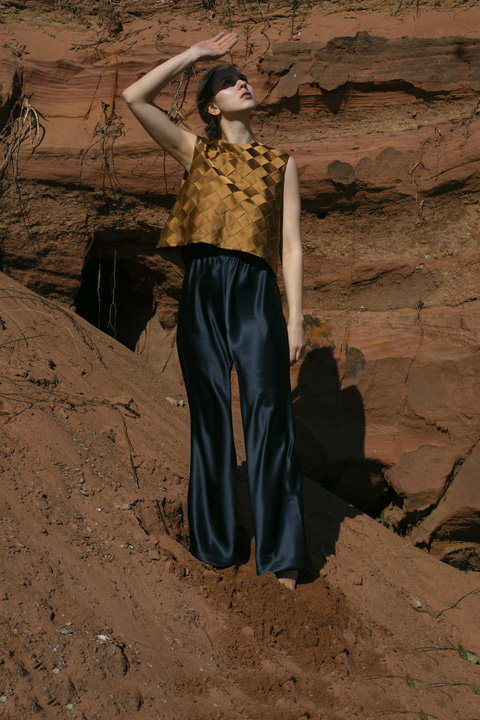
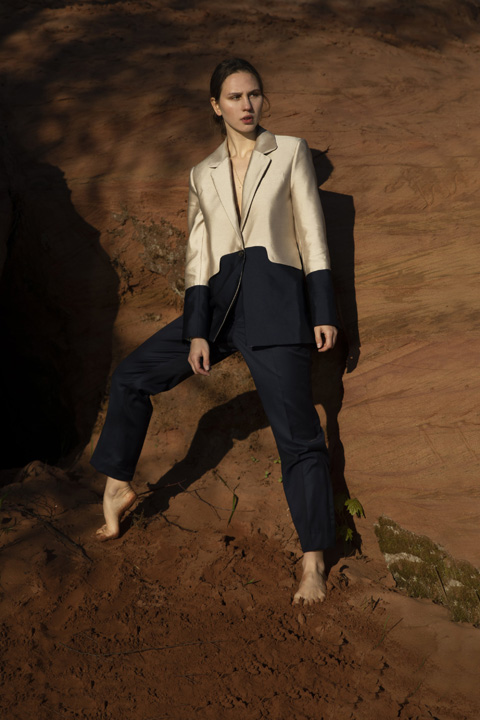
How has your lifestyle changed since then?
I definitely shop less. I try to buy better quality and timeless design. I also tend to buy second-hand more instead of new. And, of course, I also have the great advantage of being able to design clothes myself and therefor I know exactly how they were made. This is what I also like to make possible for my customers. They should be able to shop with us with a good feeling.
Outside of fashion, it’s mainly the small, everyday things that change: I buy green electricity, have a thermo mug for my coffee to go and a reusable water bottle. But I’m anything but perfect. As a designer, for example, it is important for me to meet with buyers and press representatives. This means that I travel a lot and unfortunately cannot do without flying.

Do you think you can convince other people to buy and live more sustainably?
I hope so. But I can only convince if I offer real alternatives to my customers. Things they really like. This is my incentive and I work on it every day. I am of the opinion that we don’t need one single person who lives perfectly sustainably, but millions of people who are not perfect, but make a conscious decision every day. The way to a more sustainable life is different for everyone and I am incredibly happy if someone decides to go this way with our products.


What would you expect from the fashion industry and the consumers?
In an ideal world, we would all only buy clothes that we really love and will wear for a long time. We should care for them and resell or pass them down when they no longer fit or please us. Designers should only make clothes that are sold with fair and transparent production, it should be as important as profitability.
I believe that the basic structure of the fashion industry has to change, as too much is being produced too fast and then disposed of. That won’t be an easy way because a lot of rethinking has to take place. But I am aware that many in the industry have a desire for a different approach.


Can you name sustainable hotspots in London?
‚Planet Organic‘ supermarkets always have the latest treats and unpackaged products.
Hampstead Heath, a beautiful large park in the north of London, where you can not only enjoy nature, but also swim in the ponds in summer.
Charity shops, i.e. second-hand shops whose proceeds support good causes. There, one can often find super cheap, great, high-quality things. (Especially in areas like Notting Hill, Kensington or also Chiswick, which are traditionally known as more prosperous areas, it is worth it).
The Conduit, London’s first sustainable members club, whose members are committed to sustainability, social justice and innovation.
Your collection is available on The Wearness as pre-order. What exactly does that mean?
It means that we only produce a garment after a customer has bought it. We have all garments in stock as samples but not all sizes. Only producing to order helps us to prevent the so-called “dead stock”, i.e. goods that are not sold after the season.
As a young label we are not yet able to estimate well in which quantity and which designs we will sell in which colour and size how often. We would then have to either sell them below value or have them gather dust in our warehouse, which would not only be an unbelievable pity, given all the work that has gone into them, but also very wasteful.



How exactly does this process work?
If a customer is interested in a piece of clothing, she can order it online. In London there is of course the possibility to visit us in our studio and see and try on the pieces in person. When we receive an order, all required items, i.e. fabric, buttons and so on, are brought to one of the two studios that sew our pieces.
Both of them are about 35 minutes away from our studio by public transport, which enables us to process orders very quickly. The production can take a few weeks depending on the order situation, our maximum delivery time is six weeks. Pre-Order also enables us to be flexible with customer requests, so we can implement individual colour requests or small changes to the fit very easily.
Are the clothes made in standard sizes?
Yes, we work with standard sizes for ready-to-wear, but we also offer made-to-measure. Small changes are part of the service and can be taken into account during production.
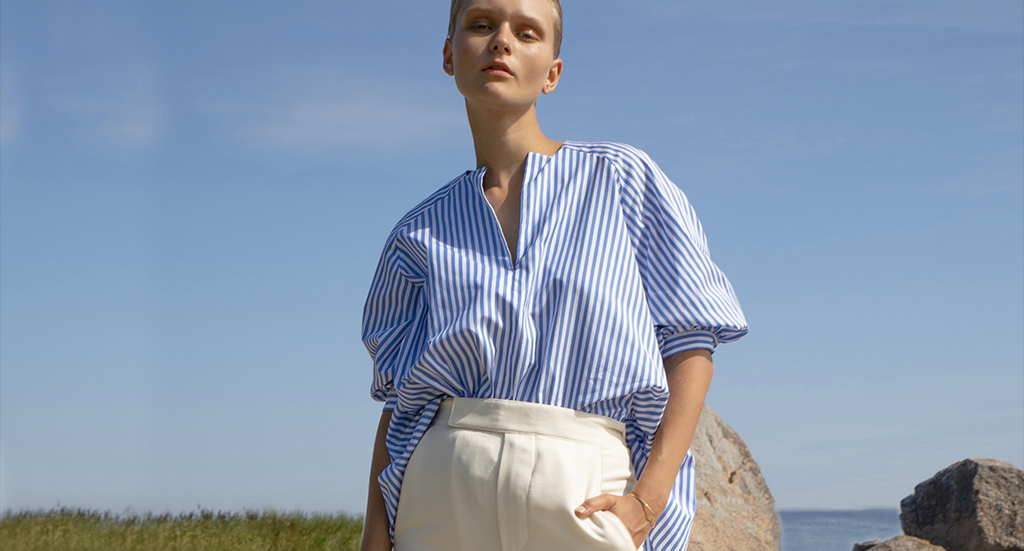
What happens if the piece of clothing doesn’t fit when I try it on at home?
We do our best to make the sizes easy to understand and also offer advice if a customer is not sure which size is the right one. However, if something does not fit, customers can either have the garment fitted or send it back. What makes HANNA FIEDLER so special is that we use tailor-made techniques.
For example, all our trousers have an extra large seam allowance so that they can easily be made up to one dress size larger at the waistband. Most items have a hidden elastic band in the back waistband, which can be tightened with buttons on the side, which in turn helps to adjust the trousers to the body individually.
Can orders be returned or exchanged?
Yes, you can, but we do our best to ensure you won’t need to in the first place!
Thank you, Hanna!


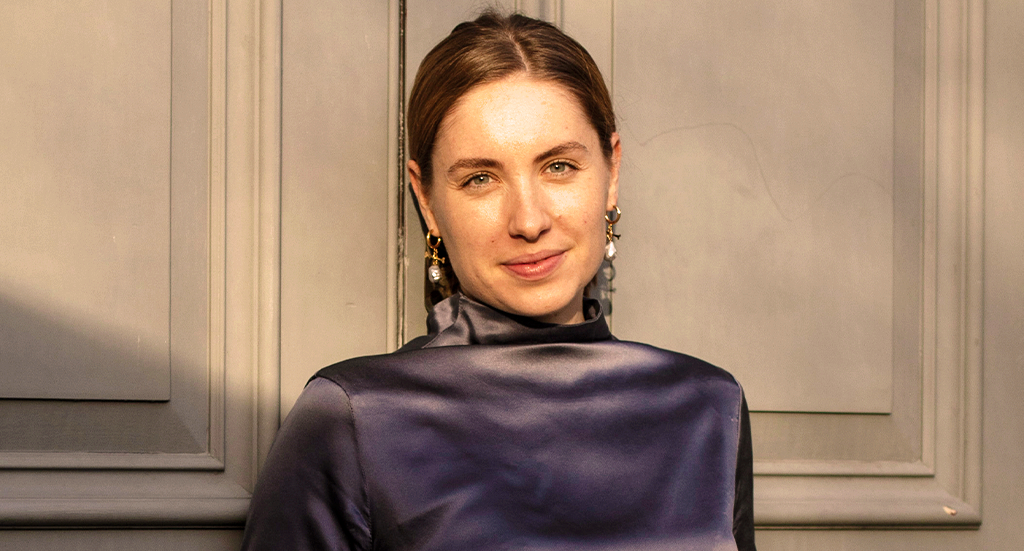

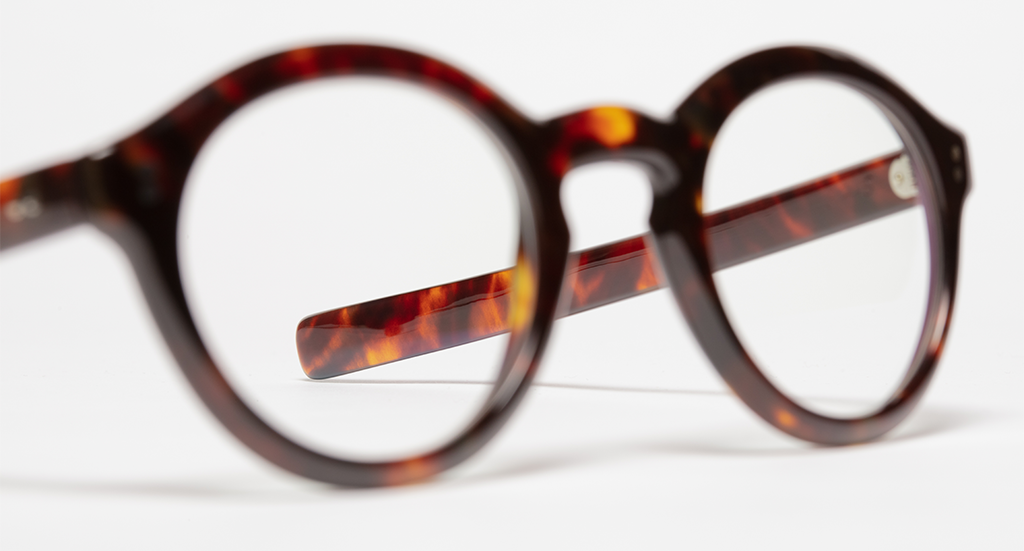

Join our Community